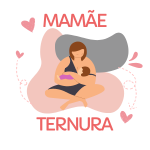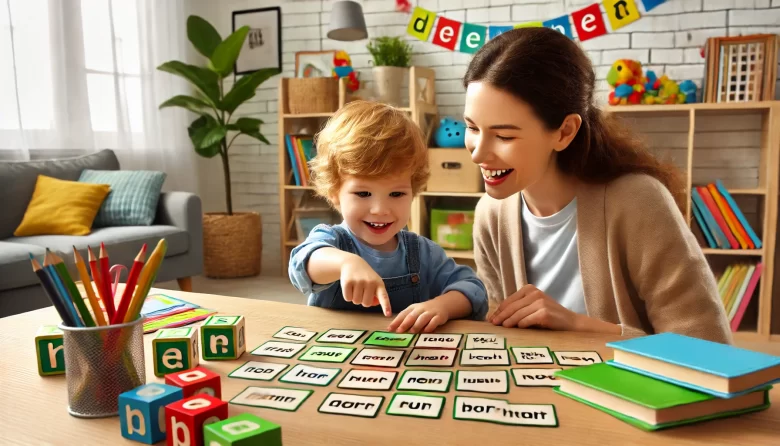A strong vocabulary is essential for communication, reading comprehension, and overall academic success. The more words a child knows, the easier it is for them to express ideas, understand new concepts, and engage in meaningful conversations.
The good news? Expanding vocabulary doesn’t have to be boring! By turning learning into a playful experience, children naturally absorb new words while having fun. In this article, we’ll explore engaging activities that help children build a rich vocabulary in a stress-free way.
Why Expanding Vocabulary Matters
A well-developed vocabulary benefits children in many ways, from everyday conversations to academic achievement.
Key Benefits of a Strong Vocabulary:
✅ Boosts Language Skills – Helps children express thoughts and ideas more clearly.
✅ Improves Reading Comprehension – Understanding more words makes reading easier and more enjoyable.
✅ Enhances Communication – Encourages confident speaking and writing.
✅ Strengthens Critical Thinking – Knowing more words helps children analyze and describe situations better.
✅ Supports Academic Success – A larger vocabulary leads to better performance in school subjects.
🎯 Pro Tip: The best way to build vocabulary is through natural exposure—make words part of daily life!
Fun and Engaging Activities to Boost Vocabulary
Word of the Day Challenge
Introduce a new word daily and find fun ways to use it throughout the day.
📝 How to Play:
✅ Choose a simple but interesting word (e.g., “giggle,” “enormous,” “whisper”).
✅ Use the word in conversations and encourage your child to do the same.
✅ At the end of the day, ask them to use the word in a sentence.
🎯 Pro Tip: Keep a “Word Wall” where new words are displayed to reinforce learning.
Storytelling with a Twist
Encourage children to create their own stories using new vocabulary words.
📖 How to Play:
✅ Give them 3-5 words (e.g., “castle,” “magical,” “adventure”) and ask them to create a story.
✅ Let them draw pictures to go with their story.
✅ For younger children, make up a story together and highlight key words.
🎯 Pro Tip: Use puppets or stuffed animals to act out the story for extra fun!
Alphabet Word Hunt
Turn learning into an active scavenger hunt for words.
🔠 How to Play:
✅ Choose a letter of the day (e.g., “B”).
✅ Find objects around the house or outside that start with that letter (e.g., “banana,” “ball”).
✅ Say each word together and describe it (“The banana is yellow and sweet!”).
🎯 Pro Tip: For older kids, challenge them to find words in books or signs outside.
Act It Out – Charades with Words
A great way to help children understand and remember new words.
🎭 How to Play:
✅ Write action words (verbs) on slips of paper (e.g., “jump,” “laugh,” “run”).
✅ Let the child pick a word and act it out while others guess.
✅ Say the word aloud and use it in a sentence after guessing.
🎯 Pro Tip: For extra challenge, use adjectives like “happy,” “excited,” or “tired” and act out emotions!
Describe the Object Game
A fun guessing game that strengthens descriptive vocabulary.
🎒 How to Play:
✅ Pick an object (e.g., an apple) but don’t show it to the child.
✅ Give clues about the object (“It’s round, red, and crunchy”).
✅ Let them guess and describe it in their own words once they see it.
🎯 Pro Tip: Switch roles and let children describe objects for you to guess.
Rhyme Time Challenge
Helps with phonemic awareness and word recognition.
🎤 How to Play:
✅ Say a word (e.g., “cat”).
✅ Ask your child to come up with rhyming words (e.g., “bat,” “hat,” “mat”).
✅ See how many rhyming words they can find in one minute!
🎯 Pro Tip: Use flashcards with pictures to help younger children with rhyming words.
Word Association Game
Encourages children to make connections between words.
🧠 How to Play:
✅ Say a word (e.g., “ocean”).
✅ The child must say a related word (e.g., “fish”).
✅ Continue taking turns until no more words can be thought of!
🎯 Pro Tip: This game helps children understand how words are related and builds their vocabulary naturally.
Read, Read, Read!
Reading is one of the best ways to introduce children to new words.
📚 How to Expand Vocabulary Through Books:
✅ Choose books slightly above their current level to introduce new words.
✅ Pause to explain unfamiliar words while reading.
✅ Encourage children to guess meanings based on pictures and context.
🎯 Pro Tip: Let children choose books based on their interests—they’ll be more engaged in learning new words!
Sing Songs and Learn New Words
Music makes language learning fun and memorable.
🎶 How to Use Songs for Vocabulary Building:
✅ Sing nursery rhymes and point out key words.
✅ Play songs with descriptive lyrics and discuss their meanings.
✅ Make up silly songs using new words.
🎯 Pro Tip: Songs with movement (e.g., “Head, Shoulders, Knees, and Toes”) reinforce vocabulary through action.
Create a Vocabulary Jar
A simple way to make learning words exciting.
🗂️ How to Play:
✅ Write new words on slips of paper and place them in a jar.
✅ Each day, pick a word and use it in conversations.
✅ At the end of the week, review the words together.
🎯 Pro Tip: Let children decorate the jar to make it a fun part of their learning routine.
Overcoming Common Challenges
“My child forgets new words quickly.”
✔️ Solution: Reuse words in different activities to reinforce learning.
“They get frustrated when they don’t understand words.”
✔️ Solution: Use pictures, gestures, and examples to help explain meanings.
“They prefer screens to books.”
✔️ Solution: Use interactive apps like Starfall or Epic! to make digital reading engaging.
🎯 Pro Tip: The more a child hears and uses a word, the more likely they are to remember it!
Final Thoughts
Expanding a child’s vocabulary doesn’t have to feel like a lesson—it can be a fun and natural part of daily life. By using games, storytelling, songs, and interactive activities, children absorb new words effortlessly while staying engaged.
The key is consistency and creativity. The more children hear, see, and use new words, the stronger their language skills will become!
Would you like personalized vocabulary-building activities based on your child’s age and interests? Let me know!




